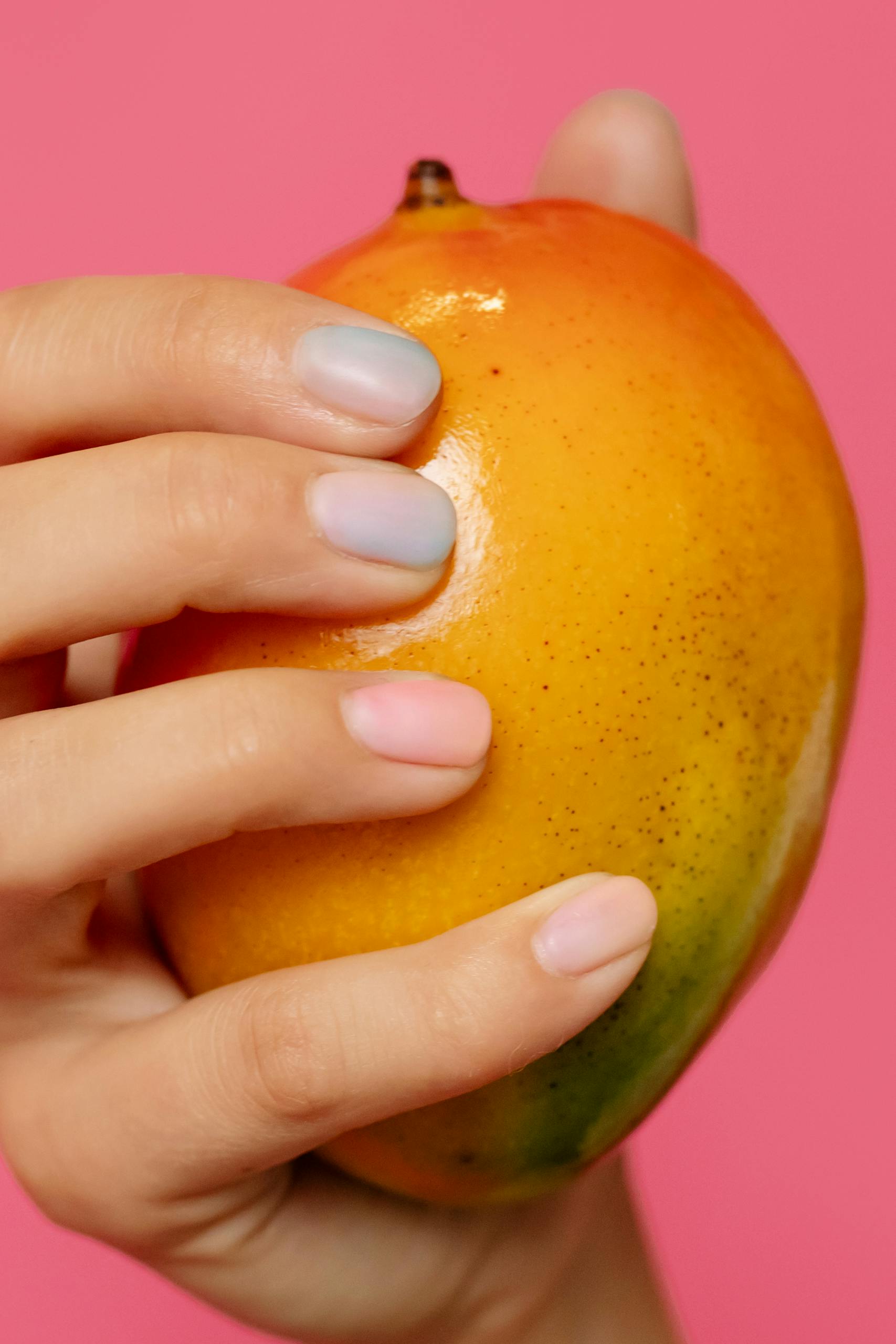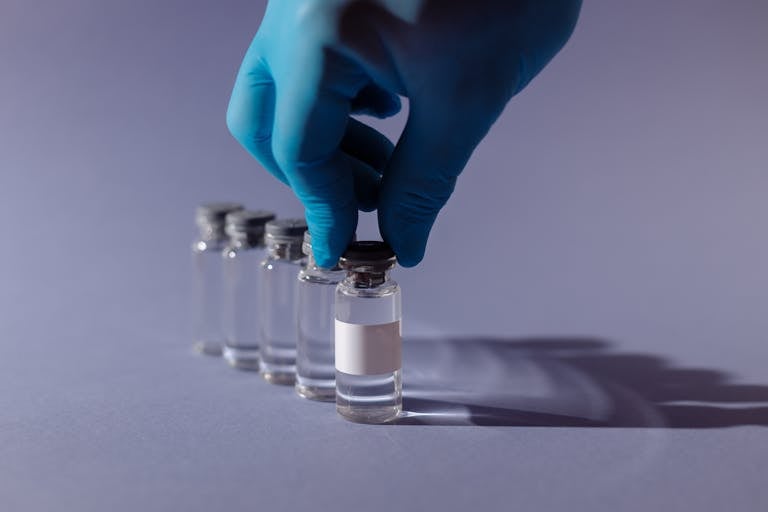Daily Mango Intake Shown to Improve Blood Sugar and Reduce Body Fat in Prediabetic Adults

A new clinical study has revealed that eating a fresh mango every day can lead to measurable improvements in blood sugar control, insulin sensitivity, and even body fat levels in adults with prediabetes. While mangoes are often criticized for their high natural sugar content, researchers at George Mason University found that the benefits of this tropical fruit outweigh concerns about sugar.
This groundbreaking trial, led by Raedeh Basiri, an assistant professor in the Department of Nutrition and Food Studies, is the first long-term clinical study to evaluate the impact of daily mango consumption in people at risk of type 2 diabetes. The results suggest that whole fruits containing natural sugars can have very different effects on health compared to processed snacks with added sugar.
Why Mangoes?
Mangoes are often placed near the top of the list of fruits with high sugar content. A typical serving contains about 32 grams of natural sugar, which might seem unsuitable for people trying to manage blood glucose levels. On the other hand, a common low-sugar snack such as a granola bar may only contain about 11 grams of sugar.
At first glance, the granola bar might appear to be the healthier choice. But the new research challenges that assumption, demonstrating that the context of food matters more than sugar alone. Mangoes provide not just natural sugars, but also fiber, vitamins, minerals, and plant compounds that contribute to overall health. By contrast, processed snacks may lack the same protective effects, even when they contain less sugar.
Study Design and Methods
The clinical trial divided participants with prediabetes into two groups:
- One group ate one fresh mango per day for 24 weeks.
- The other group consumed a low-sugar granola bar each day for the same period.
Both groups were asked to continue their normal diet and lifestyle habits, with the only difference being their assigned snack.
Over six months, the research team measured several important indicators of metabolic health, including:
- Blood glucose levels
- Insulin sensitivity (how effectively the body uses insulin)
- Body fat and body weight
- Inflammation markers (IL-6, TNF-alpha, hs-CRP)
- Gene expression related to oxidative stress and inflammation (Nrf2, TLR2, TLR4)
This structured approach allowed the researchers to directly compare the effects of mangoes against a commonly marketed low-sugar alternative.
Key Findings
At the end of the six-month trial, the results strongly favored the mango group.
- Improved Blood Glucose Control
- Participants who ate a mango daily showed better regulation of blood sugar compared to those eating granola bars.
- They also demonstrated improved insulin sensitivity, meaning their bodies required less insulin to manage blood sugar levels.
- Reduced Body Fat
- The mango group experienced a noticeable reduction in body fat.
- In contrast, the granola bar group showed a slight but significant increase in body weight over the study period.
- No Negative Impact from Higher Sugar
- Despite the higher sugar content of mangoes, participants did not gain weight or see worsening blood sugar control. In fact, the opposite occurred.
- This suggests that sugar in whole fruits behaves differently in the body compared to sugars in processed foods.
- Inflammatory Markers Unchanged
- The study did not find significant differences in markers of inflammation (such as IL-6, TNF-alpha, and hs-CRP) between the two groups.
- Gene Expression Trends
- The mango group showed an increase in Nrf2 expression, a gene linked to antioxidant defense. However, this increase was not statistically significant.
- There were no significant changes in TLR2 or TLR4 expression.
- No Significant Lipid Changes
- Cholesterol and triglyceride levels did not change significantly in either group during the study.
What This Means
The study emphasizes that not all sugars are equal. While processed snacks with added sugars may contribute to weight gain and higher diabetes risk, natural sugars in whole fruits like mango are accompanied by beneficial nutrients and compounds that can positively influence metabolism.
For individuals with prediabetes, incorporating whole fruits into their diet could be a valuable strategy for improving metabolic health. Instead of avoiding tropical fruits due to their sugar content, people may benefit from focusing on the whole nutritional package of foods.
The Role of Mango’s Nutrients
Mangoes are rich in more than just natural sugars. They contain:
- Dietary fiber – helps slow sugar absorption, stabilizing blood glucose levels.
- Vitamin C – a powerful antioxidant that supports immune function.
- Vitamin A – essential for vision and skin health.
- Folate and Vitamin B6 – important for metabolism and energy balance.
- Polyphenols and carotenoids – plant compounds with antioxidant and anti-inflammatory effects.
These components may work together to explain why mango consumption led to improved outcomes, even when compared to a lower-sugar snack.
Limitations and Caveats
Although the results are promising, it is important to recognize the study’s limitations:
- The trial lasted 24 weeks. While this is significant for a nutrition study, longer trials would be needed to confirm lasting benefits.
- The participants all had prediabetes, so results may not apply to healthy individuals or people with advanced diabetes.
- The study did not pinpoint the exact mechanisms behind mango’s benefits. While antioxidant and fiber effects are suspected, further research is needed.
- The study was funded by the National Mango Board, though the authors state that the funders had no role in study design, data collection, or analysis.
Broader Context: Fruits and Diabetes
This research fits into a growing body of evidence suggesting that whole fruits are protective against diabetes, even fruits that are higher in natural sugars. Large observational studies have consistently found that people who consume more fruit have a lower risk of type 2 diabetes.
The difference lies in how the body processes added sugars versus natural sugars in whole foods:
- Added sugars (like those in sodas, candy, and many processed snacks) are rapidly absorbed, causing spikes in blood glucose and insulin.
- Natural sugars in fruits are bound up with fiber and water, leading to slower absorption and a lower glycemic response.
In addition, the vitamins, minerals, and phytonutrients in fruits provide protective effects that processed foods cannot match.
Mangoes Beyond Blood Sugar
Mangoes are not just beneficial for blood sugar and body fat. Other studies have explored their potential role in:
- Digestive health: The fiber in mangoes supports gut health and can help regulate bowel movements.
- Heart health: While this study found no changes in cholesterol, mangoes contain antioxidants that may benefit cardiovascular function.
- Skin and eye health: The vitamin A and carotenoids in mangoes support vision and protect skin against oxidative damage.
- Anti-inflammatory properties: Although the trial didn’t find changes in inflammation markers, mangoes do contain compounds studied for their anti-inflammatory potential.
What’s Next for Research
Two clinical trials registered on ClinicalTrials.gov (NCT05571800 and NCT06986161) are exploring mango’s effects on blood sugar, cardiovascular health, and inflammation in at-risk individuals. These future studies may provide more detailed insights into how mango consumption influences health over time.
Researchers are also interested in whether mangoes impact the gut microbiome, which plays an important role in metabolism and diabetes risk.
Takeaway
The results of this study highlight a crucial point: healthy eating is about more than just counting sugar grams. A daily mango, despite its higher sugar content, offered greater health benefits than a lower-sugar processed snack.
For those with prediabetes, whole fruits like mango may be a valuable addition to a balanced diet, supporting better blood sugar control and body composition.
The next time you’re deciding between a fruit and a packaged snack, this research suggests the fruit may be the smarter choice—even if it’s on the sweeter side.
Research Reference:
Daily Mango Intake Improves Glycemic and Body Composition Outcomes in Adults with Prediabetes: A Randomized Controlled Study (Foods, 2025)





